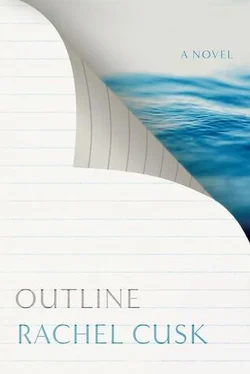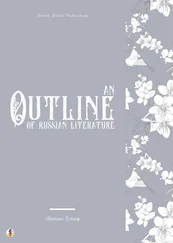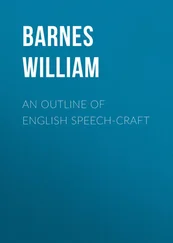So much is lost, he said, in the shipwreck. What remains are fragments, and if you don’t hold on to them the sea will take them too. Yet I still, he said, believe in love. Love restores almost everything, and where it can’t restore, it takes away the pain. For example, you, he said to me — at the moment you’re sad, but if you were in love the sadness would stop. Sitting there I thought again of my sons in their high chairs, and of their discovery that distress magically made the ball come back. At that moment the plane took its first, gentle lurch downward in the darkness. A voice began to speak over the intercom; the air hostesses began to stalk up and down, herding people back into their seats. My neighbour asked me for my telephone number: perhaps we could have dinner some time, while I was in Athens.
I remained dissatisfied by the story of his second marriage. It had lacked objectivity; it relied too heavily on extremes, and the moral properties it ascribed to those extremes were often incorrect. It was not wrong, for instance, to be jealous of a child, though it was certainly very painful for all concerned. I found I did not believe certain key facts, for instance that his wife had locked his son in the cellar, and nor was I entirely convinced by her beauty, which again seemed to me to have been misappropriated. If it wasn’t wrong to be jealous, it certainly wasn’t wrong to be beautiful: the wrong lay in the beauty being stolen, as it were, by the narrator, under false pretences. Reality might be described as the eternal equipoise of positive and negative, but in this story the two poles had become dissociated and ascribed separate, warring identities. The narrative invariably showed certain people — the narrator and his children — in a good light, while the wife was brought in only when it was required of her to damn herself further. The narrator’s treacherous attempts to contact his first wife, for instance, were given a positive, empathetic status, while his second wife’s insecurity — well founded, as we now knew — was treated as an incomprehensible crime. The one exception was the narrator’s love for his boring, tornado-swept parents-in-law, a bittersweet detail in which positive and negative regained their balance. But otherwise this was a story in which I sensed the truth was being sacrificed to the narrator’s desire to win.
My neighbour laughed, and said that I was probably right. My parents fought all their lives, he said, and no one ever won. But no one ran away either. It is the children who have run away. My brother has been married five times, he said, and on Christmas Day he sits alone in his apartment in Zurich, counting his money and eating a cheese sandwich. Tell me the truth, I said: did she really lock your son in the cellar? He inclined his head.
‘She always denied it,’ he said. ‘She claimed Takis had shut himself in there, to get her into trouble.’
But I do accept, he said, that it was not unreasonable for her to want me to go to Athens. He hadn’t quite given me the full story — in fact her mother had been taken ill. It was nothing too serious, but she needed to be admitted to the hospital on the mainland, and his wife’s Greek wasn’t all that good. But he thought they could manage, his wife and her father together. The father-in-law’s parting remark, then, was more ambivalent than, in the first version, it had seemed. We had by now fastened our seat-belts, as the voice on the intercom had asked us to, and for the first time I saw lights below as we swung quivering downwards, a great forest of lights rising and falling mysteriously through the darkness.
In those days I was so worried all the time about my children, my neighbour said. I couldn’t think about what I needed or what she needed; I thought they needed me more. His words reminded me of the oxygen masks, which had not, of course, put in an appearance over the past few hours. It was a kind of mutual cynicism, I said, that had resulted in the oxygen masks being provided, on the tacit understanding that they would never be needed. My neighbour said he had found that to be true of many aspects of life, but that all the same the law of averages was not something it paid to base your personal expectations on.
I noticed that when we walked along narrow stretches of pavement beside the roaring traffic, Ryan always took the place on the inside.
‘I’ve been reading up on statistics for road deaths in Athens,’ he said. ‘I’m taking this information very seriously. I owe it to my family to get home in one piece.’
There were often dogs lying collapsed across the pavement, big ones with extravagant shaggy pelts. They were insensate in the heat, motionless except for the breath faintly moving in their sides. From a distance they sometimes looked like women in fur coats who had fallen down drunk.
‘Do you step over a dog?’ Ryan said, hesitating. ‘Or do you walk around it?’
He didn’t mind the heat, he said — in fact he was enjoying it. He felt like years of damp were drying out. His only regret was that it had taken him till the age of forty-one to get here, because it seemed like a really fascinating place. It was a shame the wife and kids couldn’t see it too, but he was determined not to ruin it by feeling guilty. The wife had had a weekend with her girlfriends in Paris just now, leaving him to take care of the kids alone; there was no reason he shouldn’t feel he’d earned it. And to be perfectly honest, the kids slowed you down: first thing this morning he’d walked up to the Acropolis, before the heat got too intense, and he couldn’t have done that with them in tow, could he? And even if he had, he’d have spent the whole time worrying about sunburn and dehydration, and though he might have seen the Parthenon sitting like a gold and white crumbling crown on the hilltop with the fierce pagan blue of the sky behind, he wouldn’t have felt it, as he was able to feel it this morning, airing the shaded crevices of his being. Walking up there, for some reason he’d remembered how, in the bedroom of his childhood, the sheets always smelled of mould. If you opened a cupboard in his parents’ house, as often as not there’d be water running down the back of it. When he left Tralee for Dublin, he found that all his books were stuck to the shelves when he tried to take them down. Beckett and Synge had rotted and turned to glue.
‘Which suggests I wasn’t much of a reader,’ he said, ‘so it’s not a detail I give out that often.’
No, he had never been to Greece before, nor to any country where you could take the sun for granted. His wife was allergic to it in any case — to the sun, that was. Like him she’d been raised in the damp and shade and the sun brought her out in purple spots and blisters; she couldn’t cope with heat at all, which induced migraines and vomiting. They took the kids to Galway for holidays, where her parents had a house, and if they were desperate for a break from Dublin they could always go back to Tralee. It’s a case of home is where when you have to go there they have to take you in, he said. And his wife believed in all that, in the family network and Sunday lunch and children having grandparents on both sides, but if it was left to him he’d probably never cross his parents’ threshold again. Not that they did anything particularly wrong, he said, they’re nice enough people, I just don’t think it would occur to me.
We passed a café with tables in the shade of a large awning, and the people sitting at the tables looked superior, so cool and watchful in the shadows while we toiled incomprehensibly through the heat and turmoil of the street. Ryan said he might stop and drink something; he’d come here earlier, he said, for breakfast, and it had seemed like a nice place. It wasn’t clear whether he wanted me to sit down with him or not. In fact he had phrased it so carefully that I got the impression inclusion was something he actually avoided. After that I observed him for this characteristic, and I noticed that when other people were making plans, Ryan would always say ‘I might come along later’ or ‘I might see you there’ rather than commit himself to a time and place. He would only tell you what he was doing after he’d done it. I met him by chance once in the street and noticed that his slicked-back hair was wet, so I had asked him outright where he’d been. He admitted he’d just swum at the Hilton hotel, which had a large outdoor pool, where he had posed as a guest and done forty lengths alongside Russian plutocrats and American businessmen and girls with surgically enhanced bodies. He had felt sure the pool attendants were watching him, but no one had dared interrogate him. How else were you meant to exercise, he wanted to know, in the middle of a traffic-choked city in forty degrees of heat?
Читать дальше












